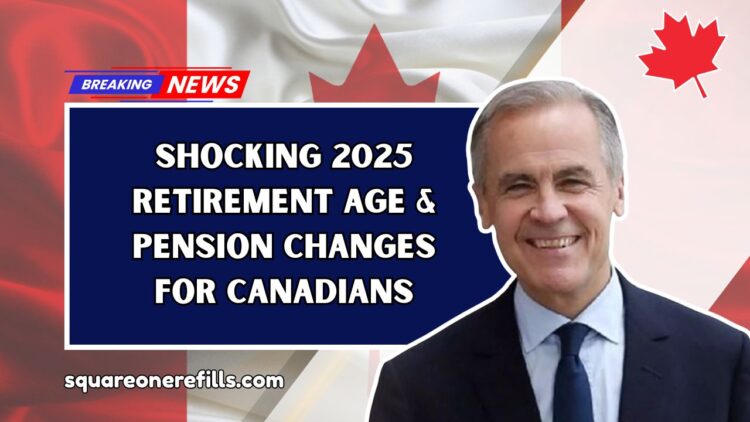As 2025 moves forward, the Canada retirement age discussion has once again become a hot topic. With inflation rising, living costs increasing, and more Canadians relying on the Canada Pension Plan (CPP) and Old Age Security (OAS), many are asking whether the current retirement system is fair and sustainable.
The government, seniors, and financial experts are debating whether the pension withdrawal policy should change. The focus is on whether the official retirement age, currently set at 65, should be increased and whether more flexible withdrawal options should be offered to those who want to retire early or work part-time after retirement.
Why Is the Retirement Age Debate Happening in 2025?
Several key factors are driving this discussion:
- Demographic pressure – By 2030, more than 20% of Canadians will be over the age of 65.
- Longer life expectancy – Canadians are living longer, meaning pension benefits are being paid for more years.
- Rising cost of living – Many seniors cannot afford to stop working at 65 and need to work longer.
- CPP and OAS sustainability – There are concerns about whether these programs can remain financially stable for future generations.
These challenges mean that changes to the retirement age and pension rules could be necessary to protect the system for the future.
Key Proposals Being Discussed in 2025
The government is considering several proposals under the pension withdrawal policy updates 2025:
- Raising the retirement age gradually from 65 to 67 by 2030.
- Partial pension withdrawals starting from age 60, allowing people to work part-time while receiving some benefits.
- Increasing CPP contributions for higher-income earners to reduce pressure on the pension fund.
- Automatic pension deferral incentives to reward those who delay their retirement.
- Expanded tax credits for older Canadians who continue working past the retirement age.
How Would These Changes Affect Canadians?
These proposed reforms could have different effects on people depending on their situation:
- For workers aged 60–64 – They may have to wait longer for full pension benefits.
- For current retirees – No immediate changes are expected, but future benefit rules may be adjusted.
- For younger workers – They could face a higher retirement age and higher contribution requirements.
Lower-income workers and people in physically demanding jobs are most concerned, as they might struggle to work longer compared to those in office-based careers.
Proposed Retirement Policy Updates in 2025 – Table
| Policy Proposal | Current Status | Proposed Change | Impacted Group |
|---|---|---|---|
| Retirement Age | 65 | 67 by 2030 | All workers under 60 |
| Partial Pension Withdrawal | From age 60 | Flexible with work | Early retirees |
| CPP Contribution for High-Income Earners | Standard rate | Increased rates | High earners |
| Pension Deferral Bonuses | Optional | Increased incentives | Seniors retiring late |
| Tax Credits for Working Seniors | Limited | Expanded | Workers aged 65+ |
Public Reaction to the Retirement Age Debate
The retirement age debate is dividing opinion in Canada:
- Supporters believe that increasing the retirement age and encouraging later retirement will make pensions more sustainable and keep skilled workers in the economy longer.
- Opponents argue that this will unfairly impact those who have health issues or work in physically demanding jobs.
The Canadian Association of Retired Persons (CARP) has stated that any changes should not punish seniors already struggling financially.
Urban professionals are generally more open to working longer, while rural and manual labor workers are more resistant.
With Canadians living longer and economic pressures growing, the retirement age in Canada is likely to remain a major political and social topic in the coming years. The pension withdrawal policy updates 2025 could significantly affect when people retire, how much they receive, and how long they must work.
While no official law changes have been passed as of August 2025, the direction of these debates suggests that younger Canadians should prepare for possible later retirement ages and higher contribution requirements. Staying informed about policy updates will be key for anyone planning their financial future.
FAQs
What is the current retirement age in Canada?
The standard retirement age is 65, but early retirement is possible from age 60 with reduced benefits.
Will current pensioners be affected by changes in 2025?
No immediate changes will affect those already receiving pensions, but future benefit adjustments are possible.
Can I still retire at 60 in Canada?
Yes, you can, but you will receive a smaller monthly pension compared to retiring at 65.

